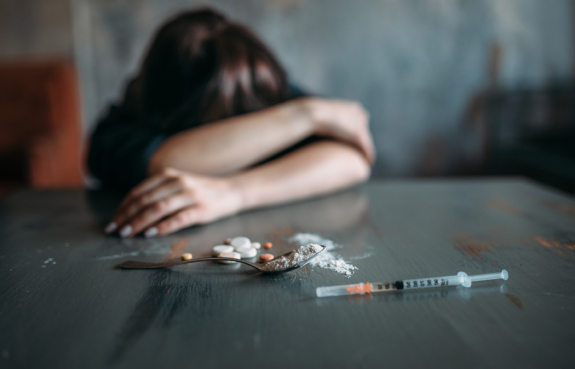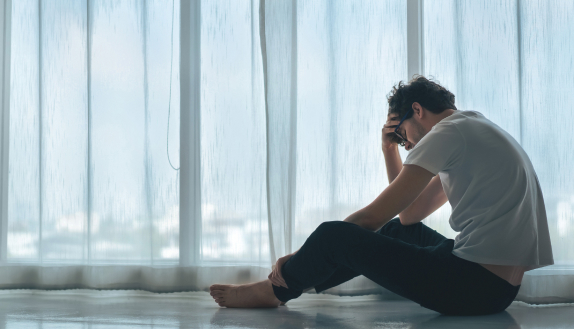It is characterized by the compulsive use of opioids despite the negative consequences it may have on a person’s physical and mental health, social life, and legal status. Opioids include prescription painkillers like oxycodone, hydrocodone, codeine, and morphine, as well as illegal drugs like heroin.
When opioids are taken, they bind to specific receptors in the body, such as the brain, spinal cord, and other body parts. This leads to feelings of euphoria, pain relief, and relaxation. However, repeated use of opioids can lead to physical dependence, tolerance, and addiction.
People addicted to opioids may experience various symptoms, including cravings, withdrawal symptoms when they try to stop using, difficulty controlling their drug use, continued use despite negative consequences, and an increased risk of overdose.
- Our Programs
- Addiction Therapy Programs
Our Programs
Opiate addiction treatment in Florida involves several approaches and may differ depending on the severity of the addiction, the individual’s health status, and other factors. Some of the commonly used opiate addiction treatments are as follows:
Signs and Symptoms of Opioid Addiction
Opioid addiction can be a serious and life-threatening condition. Recognizing the signs and symptoms is crucial, as getting help as early as possible often leads to better outcomes. Some of the most common opioid addiction signs and symptoms include the following:
- Increased tolerance to opioids means the person needs increased amounts of the drug to achieve the desired effect.
- Withdrawal symptoms when attempting to stop using opioids include anxiety, irritability, insomnia, sweating, nausea, vomiting, and diarrhea.
- Continued use of opioids despite negative consequences, such as health problems, legal issues, or strained relationships.
- Spending a lot of time and energy obtaining and using opioids, to the point that other areas of life (such as work, school, or hobbies) are neglected.
- Craving opioids or experiencing intense urges to use them.


- Using opioids in dangerous or risky situations, such as while driving or operating heavy machinery.
- Withdrawing from social activities and relationships and preferring to spend time alone or with other people who use drugs.
- Using opioids to cope with emotional pain, stress, or anxiety.
- Developing a preoccupation with opioids and spending a lot of time thinking about them or planning how to obtain them.
- Changes in behavior or appearance, such as sudden weight loss, frequent absences from work or school, or neglecting personal hygiene.
It’s important to understand that not all people who use opioids will develop an addiction. Still, those who do may experience some or all of these symptoms. As stated above, seeking professional help as soon as possible is important. For assistance with opioid addiction, talk with opiate addiction rehab Florida staff members at Genesis Addiction Recovery Center.
Essential Steps to Recovery From Opiate Addiction
Opiate addiction rehabilitation can be challenging, but several steps can increase the likelihood of a successful outcome. Here are some essential steps for effective opioid addiction treatment:
- Seek Professional Help: It is essential to seek professional help from a healthcare provider trained in addiction treatment. They can help assess the severity of your addiction, create a personalized treatment plan, and provide the necessary support and resources to achieve a successful outcome.
- Detoxification: Detoxification is the process of removing opioids from the body. This process can be uncomfortable and potentially dangerous, so detoxification under medical supervision is important. Medication may be prescribed to help manage withdrawal symptoms and prevent relapse.

- Medication-Assisted Treatment (MAT): MAT involves using medications, such as methadone, buprenorphine, or naltrexone, along with counseling and behavioral therapies. MAT can help manage cravings, reduce withdrawal symptoms, and increase the chances of long-term recovery.
- Counseling and Behavioral Therapy: Counseling and behavioral therapy helps individuals identify the root causes that may have contributed to their addiction to cope with cravings and triggers. Therapy can also help address mental health issues, such as anxiety or depression, which often co-occur with opioid addiction.
- Support Groups: Support groups, such as Narcotics Anonymous or those found at Genesis House Addiction Recovery Center, provide a community of peers who understand the challenges of addiction. These groups offer encouragement and support.
- Lifestyle Changes: It is essential to make changes to support long-term recovery. This may include adopting a healthy diet, exercising regularly, getting enough sleep, and finding healthy ways to cope with stress.
Genesis House Addiction Recovery Center Can Help
Overall, a successful outcome for opioid addiction treatment requires a comprehensive approach that addresses addiction’s physical, emotional, and psychological aspects. With the right support and resources, recovery is possible.
Genesis House Addiction Recovery Center provides a well-rounded approach to opiate addiction treatment in South Florida. The professional and knowledgeable team will create an efficient, personalized program for those struggling with opiate addiction. This program may include medical detox, support groups, partial hospitalization, and more. Working with an experienced team is crucial for a successful recovery. That team is Genesis House Recovery Center.

Luxury alcohol & drug rehab in Lake Worth, South Florida Genesis House
Genesis House has provided high-quality luxury drug and alcohol rehabilitation services for over two decades in Palm Beach County, FL.
Call today to learn how they can help you or a loved one on the path to a brighter future.

